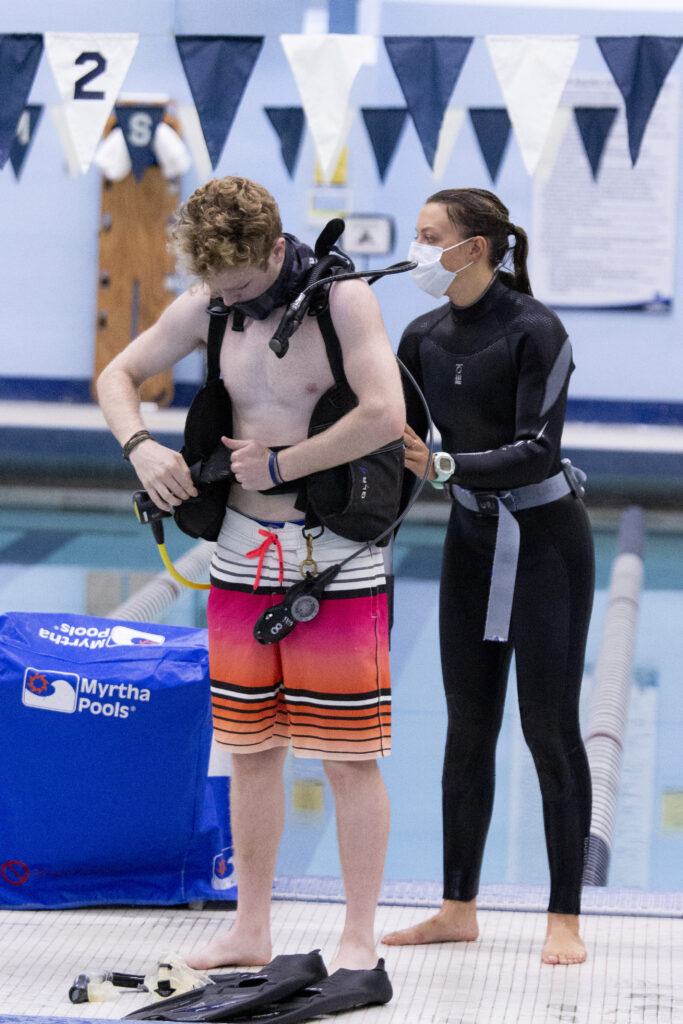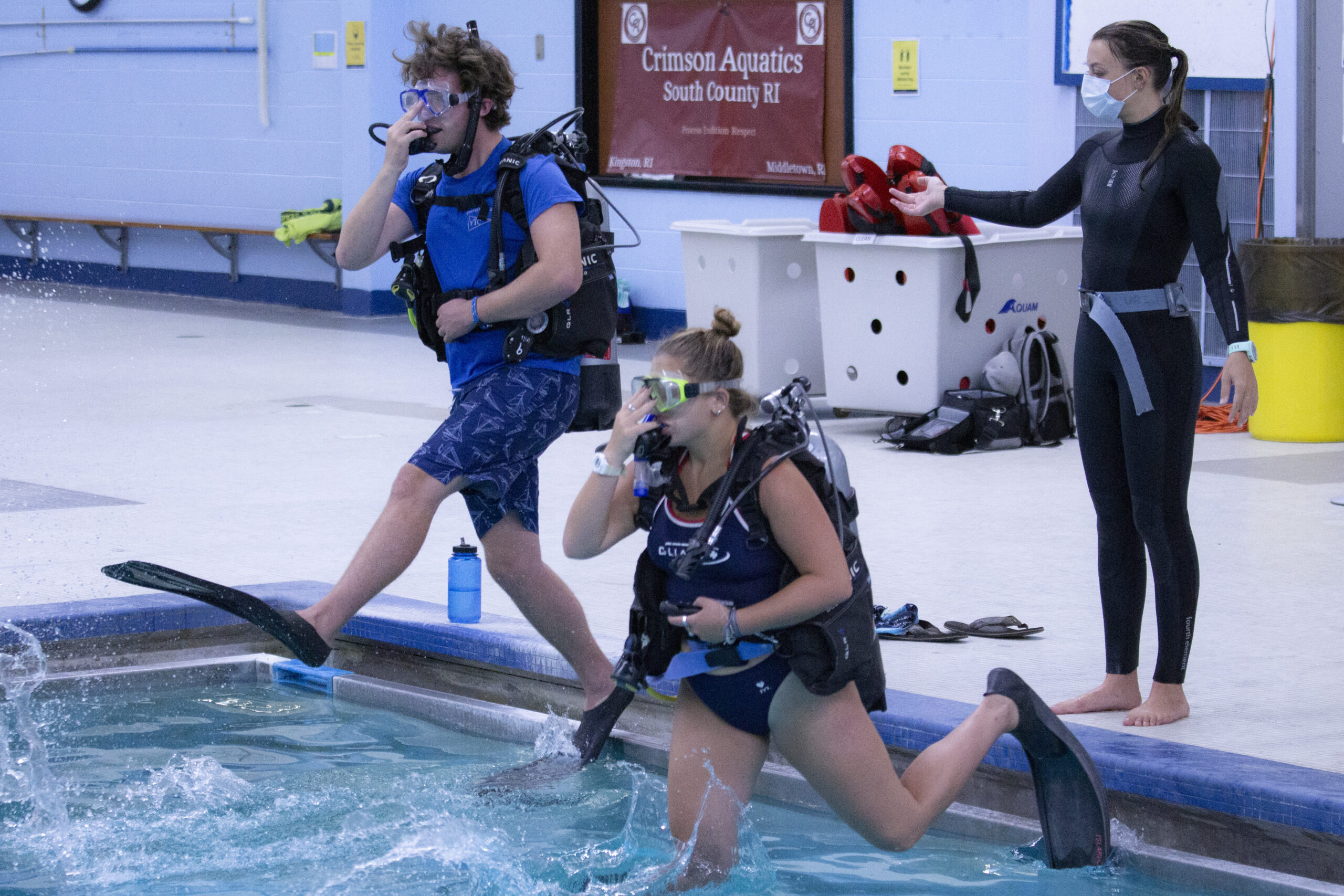Dive Research Education and Training gets students scuba
Students can get their scuba diving experience by training with the Dive Research Education and Training Program. Photos by James McIntosh.
For students interested in deepening their knowledge of aquatic environments, the Dive Research Education and Training Program at the University of Rhode Island offers scuba diving classes and certifications.
According to Anya Hanson, URI’s diving safety officer, there are two components to the program: recreational diving and research scuba diving. In the recreational side of diving, students learn to dive for personal enjoyment or as a foundation for research diving. Courses are offered both for-credit and not-for-credit, according to the program’s webpage.
“The recreational side of diving includes the introductory classes,” Hanson said. “We really teach everything from learning to scuba dive, learning to scuba dive in different environments, such as at night, using different types of equipment and I even teach an underwater photography course.”
After students have completed their prerequisite courses, they are able to delve into the research side of scuba diving. This includes learning popular research methodologies underwater such as sampling the septic substrate, learning how to construct biological surveys and emergency response protocol.
“The research side is setting up students to do what the working professionals do and then research in the future, whether it’s for an internship or graduate school, and later for careers,” Hanson said. “Sometimes there is a little overlap between the recreational program but really what is the purpose: are they doing it for recreational, for fun, or are they doing it to prepare themselves for research?”

URI recently added a Marine Technical Certificate to their program, which allows students who participate in the necessary courses to get a certificate recognizing their experience in fieldwork and marine research. Hanson explained that marine research can refer to marine biology, ocean engineering, underwater archaeology, aquaculture, fisheries and other marine related disciplines offered at the University.
The classes are taught with both lecture and lab portions. Students have tests and quizzes while also diving in the URI pool as well as the ocean to gain practical knowledge.
“We have a large facility at the Graduate School of Oceanography at the Narragansett Bay Campus and there students will meet there for lab, collect their equipment, which is all URI-owned equipment, and we go out to different field sites and do the task at hand whether it’s learning emergency skills or learning research methods and practicing those underwater; so it’s a lot of fun,” Hanson said.
Along with local field trips, the program offers international field trips during the spring semester and J-term. These trips are hosted all around the world from Bermuda to Israel.
“It really comes down to the fact that it’s too cold to do some of the work that we need to do here in the spring,” Hanson said. “We don’t have coral reefs that they have elsewhere, so to have access to these environments is great and to incorporate travel and have a scuba diving focused activity angle opportunity from it, but it’s also an incredible cultural experience for students traveling to these different countries.”
Associate Diving Safety Officer and Dive Lecturer Alexandra Moen said that URI’s scuba diving program offers students a great opportunity while letting students experience exploring a new environment and learning outside of the typical classroom setting.
The coastline of Rhode Island is a great resource to tap into and the scuba diving class is one way students can check out this underwater environment for a non-traditional class, according to Moen.
“Being a college student can be really stressful; you are constantly in class and constantly focused on learning and retaining information,” Moen said. “While scuba requires you to do this, you are not necessarily sitting behind a desk you’re doing it; you’re underwater; you’re in a different type of environment.”
Hanson said that while scuba diving is enjoyable, it’s primary goal at URI is for gaining knowledge.
“Scuba diving is not just fun; it’s not just a vacation,” said Hanson. “Scuba diving is really a tool that we use to access the underwater environment and we have to do so with formal training for safety purposes,.”

